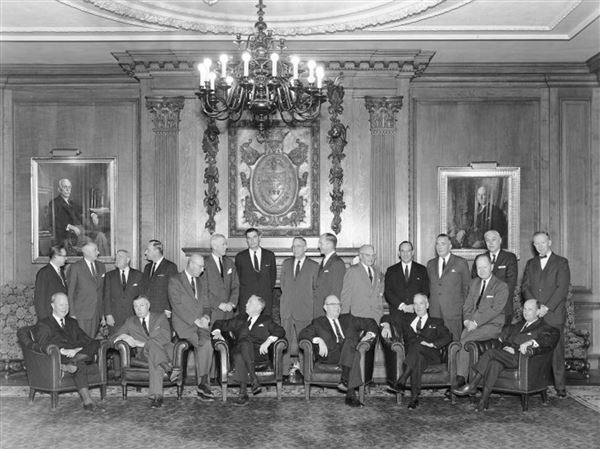HARRISBURG - Nine powerful labor unions have formed a new coalition aimed at stopping state legislators from using layoffs of state employees as the primary means of erasing the current $1 billion state budget deficit.
The Coalition for Labor Engagement and Accountable Revenue, unveiled Monday, consists of the AFL-CIO, American Federation of State, County and Municipal Employees, the Service Employees International Union, the Pennsylvania State Education Association and other labor groups.
Its formation comes as talks between Gov. Ed Rendell and legislators of both parties are about to begin fashioning a state budget for the fiscal year starting July 1.
The current budget - for fiscal 2009-10, which ends June 30 - is more than $1 billion in the red. Mr. Rendell, a Democrat in his final year in office, has proposed a $29 billion spending plan for fiscal 2010-11, while a top Senate Republican, Sen. Jake Corman of Centre County, said the state can't afford to spend more than $27.5 billion.
If legislators chop $1.5 billion in spending, thousands of state employees could lose their jobs, said Kathy Jellison, SEIU president, and that would hurt state residents by having fewer inspections of nursing homes, hospitals, elevators, restaurants and other services that impact public safety.
"We cannot rely on cuts alone to balance the budget," she said.
AFL-CIO President-elect Rick Bloomingdale said that Pennsylvanians "expect their elected officials to do the right thing by adopting a common-sense budget that protects public safety, provides services to the most vulnerable among us and promotes Pennsylvania's economic recovery."
"Pennsylvania already has the second-lowest number of state employees per capita," said David Fillman of AFSCME Council 13. "The focus should change to closing tax loopholes and ending special-interest tax breaks."
Before any of the current 77,000 state workers lose their jobs, some higher revenues should be enacted, the group said. They supported measures already being pushed by Mr. Rendell - a new tax on the sales of cigars and smokeless tobacco; an extraction tax on natural gas pumped from areas of Marcellus shale; eliminating a vendor discount that businesses get for paying sales taxes on time; and closing the "Delaware loophole," which lets Pennsylvania companies avoid paying state business taxes by headquartering subsidiaries in Delaware.
But many Republicans, conservatives and Libertarians - along with the growing "tea party" groups and the industries that would have to pay higher taxes - are mounting a strong campaign against the revenue enhancements, so legislators will be caught in the crossfire of spending cuts versus higher taxes as ways to erase the deficit.
Also in the labor coalition is the Association of Pennsylvania State College & University Faculties, which is worried about layoffs at the 14 state-owned universities. Union President Steve Hicks noted that four of the universities may use layoffs to reduce costs.
Mansfield University on Monday became the fourth school to tell its campus that job cuts are likely. Mansfield President Maravene Loeschke blamed budgetary woes and said the cuts may reach the classroom.
"As a result of these identified budget shortfalls, we are now considering the elimination or consolidation of programs and courses offered at Mansfield University, which may lead to the retrenchment of faculty," the president wrote.
Last week, Slippery Rock University notified employees internally of the possibility of various campus cuts in 2010-11 amid the state's fiscal crisis, including up to 20 staff and administrative layoffs. The State System of Higher Education, with total enrollment of 117,000 students, gets $40 million less in subsidies than it got two years ago from the recession-battered state.
First Published: May 25, 2010, 4:00 a.m.













